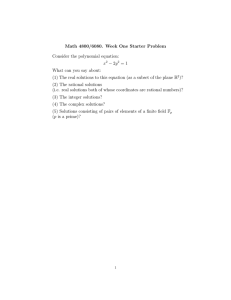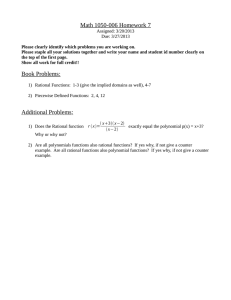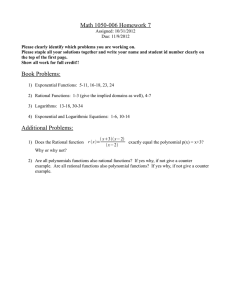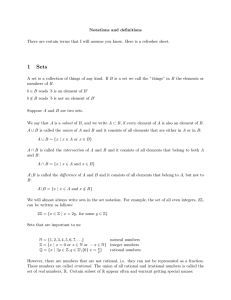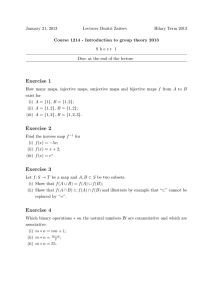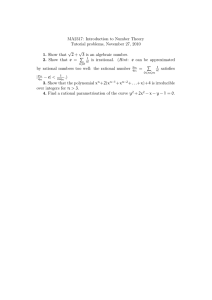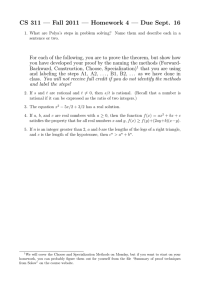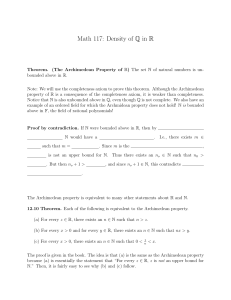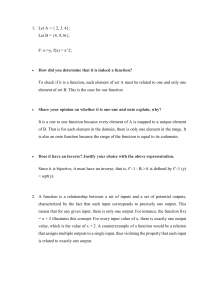Problem Set # 2
advertisement
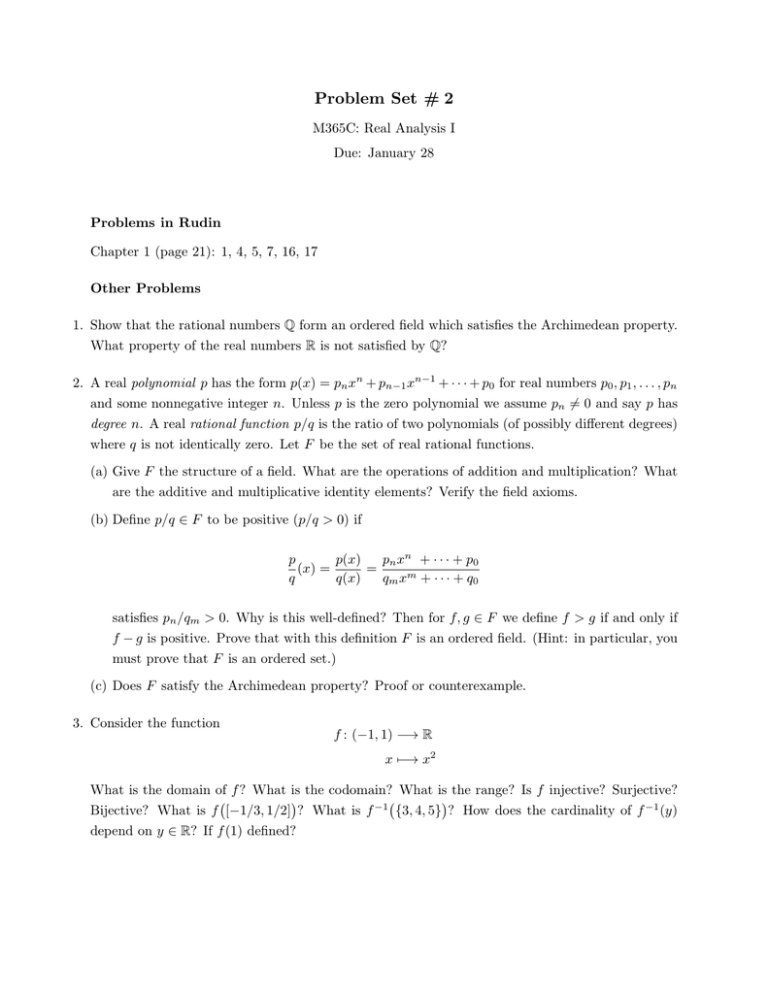
Problem Set # 2
M365C: Real Analysis I
Due: January 28
Problems in Rudin
Chapter 1 (page 21): 1, 4, 5, 7, 16, 17
Other Problems
1. Show that the rational numbers Q form an ordered field which satisfies the Archimedean property.
What property of the real numbers R is not satisfied by Q?
2. A real polynomial p has the form p(x) = pn xn + pn−1 xn−1 + · · · + p0 for real numbers p0 , p1 , . . . , pn
and some nonnegative integer n. Unless p is the zero polynomial we assume pn ̸= 0 and say p has
degree n. A real rational function p/q is the ratio of two polynomials (of possibly different degrees)
where q is not identically zero. Let F be the set of real rational functions.
(a) Give F the structure of a field. What are the operations of addition and multiplication? What
are the additive and multiplicative identity elements? Verify the field axioms.
(b) Define p/q ∈ F to be positive (p/q > 0) if
p
p(x)
pn xn + · · · + p0
(x) =
=
q
q(x)
qm xm + · · · + q0
satisfies pn /qm > 0. Why is this well-defined? Then for f, g ∈ F we define f > g if and only if
f − g is positive. Prove that with this definition F is an ordered field. (Hint: in particular, you
must prove that F is an ordered set.)
(c) Does F satisfy the Archimedean property? Proof or counterexample.
3. Consider the function
f : (−1, 1) −→ R
x 7−→ x2
What is the domain of f ? What is the codomain? What is the range? Is f injective? Surjective?
(
)
(
)
Bijective? What is f [−1/3, 1/2] ? What is f −1 {3, 4, 5} ? How does the cardinality of f −1 (y)
depend on y ∈ R? If f (1) defined?

